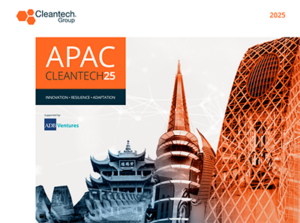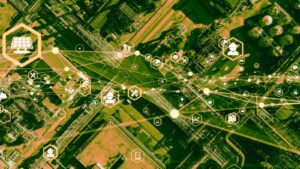Agriculture & Food, Enabling Technologies, Energy & Power, Materials & Chemicals, Recent Deals, Transportation & Logistics | 10 January 2023
Recent Deals – 10 January 2023
Precision fermentation at scale, weather resistant encapsulation films, graphite enhanced concrete, and cloud accessibility platforms
 Liberation Labs (2022) is the developer of a precision fermentation technology and platform which produces alternative proteins at scale. The system aims to bridge the widening fermentation capacity gap within the sector of cellular agriculture. Liberation Labs has recently raised $20M in a seed funding round led by Agronomics and Siddhi Capital with participation from CPT Capital, Thia Ventures, 8090 Industries, and Echo. As the company aims to continue scaling-up its growth to meet the rising demand for novel proteins from both traditional and food-technology companies, these funds will be used to build a 600,000-liter production facility in the United States.
The nexus between population growth, health-conscious trends, and impact-driven consumers will continue to play a critical role in encouraging new innovation in the food technology sphere, which in turn will require greater production capacities. Liberation Labs aims to continue commercialising precision fermentation and building a global network of purpose-built manufacturing facilities at an international scale, which will support the upcoming wave of food-biotechnology advancements.
Liberation Labs (2022) is the developer of a precision fermentation technology and platform which produces alternative proteins at scale. The system aims to bridge the widening fermentation capacity gap within the sector of cellular agriculture. Liberation Labs has recently raised $20M in a seed funding round led by Agronomics and Siddhi Capital with participation from CPT Capital, Thia Ventures, 8090 Industries, and Echo. As the company aims to continue scaling-up its growth to meet the rising demand for novel proteins from both traditional and food-technology companies, these funds will be used to build a 600,000-liter production facility in the United States.
The nexus between population growth, health-conscious trends, and impact-driven consumers will continue to play a critical role in encouraging new innovation in the food technology sphere, which in turn will require greater production capacities. Liberation Labs aims to continue commercialising precision fermentation and building a global network of purpose-built manufacturing facilities at an international scale, which will support the upcoming wave of food-biotechnology advancements.
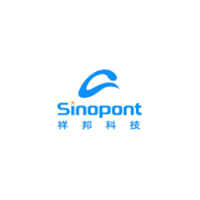 Sinopont (2006), produces polymer solar cell encapsulation films which protect against weather, corrosive environments, and UV radiation. These films, aside from being weather resistant, have light transmission, adhesion, and anti-PID performance features that make them supportive for double-sided battery components. The company has raised $145M in Series D funding from GGV Capital and Source Code Capital to support the development of its POE-based encapsulant films. In the upcoming years, Sinopont maintains its goal to grow its current Central and East China production bases to include a third production facility that will be based overseas, allowing the company to explore global markets.
Sinopont (2006), produces polymer solar cell encapsulation films which protect against weather, corrosive environments, and UV radiation. These films, aside from being weather resistant, have light transmission, adhesion, and anti-PID performance features that make them supportive for double-sided battery components. The company has raised $145M in Series D funding from GGV Capital and Source Code Capital to support the development of its POE-based encapsulant films. In the upcoming years, Sinopont maintains its goal to grow its current Central and East China production bases to include a third production facility that will be based overseas, allowing the company to explore global markets.
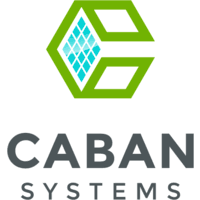 Caban Systems (2017) develops lithium-ion energy storage systems for back-up and off-grid telecom applications. These systems combine its lithium-ion energy storage technology, intelligent remote monitoring software, and integrated Energy-as-a-Service to provide renewable energy solutions for critical infrastructures and reduced operational expenses while increasing uptime. The company has recently raised $51M in Series B funding in a round led by BCP Ventures and joined by Ontario Power Generation Pension Fund, Ember Infrastructure, Portfolia, and Inspiration Ventures.
The funds will be used to support its plans of scaling-up its domestic battery manufacturing capacity, widening its product and service range, and funding its expansion into global markets. This round of financing has been instrumental in confirming both to the company and its target market that its Energy-as-a-Service business model combined with its energy storage technology has a critical role to play in the upcoming shift towards a renewably-powered infrastructure industry.
Caban Systems (2017) develops lithium-ion energy storage systems for back-up and off-grid telecom applications. These systems combine its lithium-ion energy storage technology, intelligent remote monitoring software, and integrated Energy-as-a-Service to provide renewable energy solutions for critical infrastructures and reduced operational expenses while increasing uptime. The company has recently raised $51M in Series B funding in a round led by BCP Ventures and joined by Ontario Power Generation Pension Fund, Ember Infrastructure, Portfolia, and Inspiration Ventures.
The funds will be used to support its plans of scaling-up its domestic battery manufacturing capacity, widening its product and service range, and funding its expansion into global markets. This round of financing has been instrumental in confirming both to the company and its target market that its Energy-as-a-Service business model combined with its energy storage technology has a critical role to play in the upcoming shift towards a renewably-powered infrastructure industry.
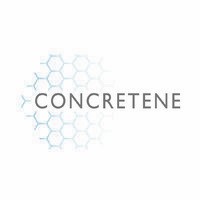 Concretene (2022) is a developer of a graphite-enhanced concrete which offers a viable CO2 reduction technology for cementitious products within the construction industry. The technology utilises an admixture that can be used in up to 99% of concretes worldwide, and which enables up to a 30% reduction in the volume of concrete required, elimination or reduction of steel reinforcements, and the overall reduction of cement content within concrete by up to 50%.
LocalGlobe has led a $9.7M seed funding round in the company which was born from the partnership between the UK’s Nationwide Engineering Research and Development (NERD) and Graphene Engineering Innovation Centre (GEIC). The company has currently over 50 clients within transport, construction, energy and government bodies that are using the advanced nanomaterial technology of Concretene in upcoming projects.
Concretene (2022) is a developer of a graphite-enhanced concrete which offers a viable CO2 reduction technology for cementitious products within the construction industry. The technology utilises an admixture that can be used in up to 99% of concretes worldwide, and which enables up to a 30% reduction in the volume of concrete required, elimination or reduction of steel reinforcements, and the overall reduction of cement content within concrete by up to 50%.
LocalGlobe has led a $9.7M seed funding round in the company which was born from the partnership between the UK’s Nationwide Engineering Research and Development (NERD) and Graphene Engineering Innovation Centre (GEIC). The company has currently over 50 clients within transport, construction, energy and government bodies that are using the advanced nanomaterial technology of Concretene in upcoming projects.
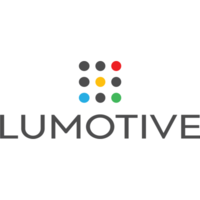 Lumotive (2017), is a developer of solid-state lidar for autonomous vehicles, 3D sensors, consumer electronics, robotics, and other automotive applications. The system utilises beam-steering technology to create a high-performance and mass application readiness which allows companies to reduce the cost, size, and complexity of its lidar systems. The company has raised $13M in funding by Samsung Ventures, USAA, and Uniquest, which brings its overall raised sum to $56M.
The funding will allow Lumotive to accelerate the development and delivery of its optical semiconductor devices, supporting the upcoming generation of lidar sensors to which these high-performance form factor and low-cost LCM chips play a key part. The company aims to continue growing within the automation and augmented reality (AR) markets, with its optical semiconductor chips continuing to disrupt the 3D sensor market on both the consumer and industrial side.
Lumotive (2017), is a developer of solid-state lidar for autonomous vehicles, 3D sensors, consumer electronics, robotics, and other automotive applications. The system utilises beam-steering technology to create a high-performance and mass application readiness which allows companies to reduce the cost, size, and complexity of its lidar systems. The company has raised $13M in funding by Samsung Ventures, USAA, and Uniquest, which brings its overall raised sum to $56M.
The funding will allow Lumotive to accelerate the development and delivery of its optical semiconductor devices, supporting the upcoming generation of lidar sensors to which these high-performance form factor and low-cost LCM chips play a key part. The company aims to continue growing within the automation and augmented reality (AR) markets, with its optical semiconductor chips continuing to disrupt the 3D sensor market on both the consumer and industrial side.
 Blues Wireless (2018) provides device-to-cloud cellular solutions which facilitate the accessibility of cellular Internet-of-Things (IoT) for business and people. The platform offers a device-to-cloud and low-code data pump which removes complexity-related barriers to entry around building connected technology for both software developers, enterprises, and consumers alike. This process will continue to open up the path of connecting more products to the cloud using cellular; a process which was previously branded as risky and too complex.
Further, the embedded connectivity has recently raised $32M in a Series A funding round which was led by Positive Sum, and received participation from Four Rivers, Northgate, Qualcomm, Sequoia, Cascade, Lachy Groom and XYZ. The funds will facilitate growth of the company and expand its operations. The company aims to support this growing movement towards greater connectivity by stretching its business reach into new markets.
Blues Wireless (2018) provides device-to-cloud cellular solutions which facilitate the accessibility of cellular Internet-of-Things (IoT) for business and people. The platform offers a device-to-cloud and low-code data pump which removes complexity-related barriers to entry around building connected technology for both software developers, enterprises, and consumers alike. This process will continue to open up the path of connecting more products to the cloud using cellular; a process which was previously branded as risky and too complex.
Further, the embedded connectivity has recently raised $32M in a Series A funding round which was led by Positive Sum, and received participation from Four Rivers, Northgate, Qualcomm, Sequoia, Cascade, Lachy Groom and XYZ. The funds will facilitate growth of the company and expand its operations. The company aims to support this growing movement towards greater connectivity by stretching its business reach into new markets.
Agriculture & Food
 Liberation Labs (2022) is the developer of a precision fermentation technology and platform which produces alternative proteins at scale. The system aims to bridge the widening fermentation capacity gap within the sector of cellular agriculture. Liberation Labs has recently raised $20M in a seed funding round led by Agronomics and Siddhi Capital with participation from CPT Capital, Thia Ventures, 8090 Industries, and Echo. As the company aims to continue scaling-up its growth to meet the rising demand for novel proteins from both traditional and food-technology companies, these funds will be used to build a 600,000-liter production facility in the United States.
The nexus between population growth, health-conscious trends, and impact-driven consumers will continue to play a critical role in encouraging new innovation in the food technology sphere, which in turn will require greater production capacities. Liberation Labs aims to continue commercialising precision fermentation and building a global network of purpose-built manufacturing facilities at an international scale, which will support the upcoming wave of food-biotechnology advancements.
Liberation Labs (2022) is the developer of a precision fermentation technology and platform which produces alternative proteins at scale. The system aims to bridge the widening fermentation capacity gap within the sector of cellular agriculture. Liberation Labs has recently raised $20M in a seed funding round led by Agronomics and Siddhi Capital with participation from CPT Capital, Thia Ventures, 8090 Industries, and Echo. As the company aims to continue scaling-up its growth to meet the rising demand for novel proteins from both traditional and food-technology companies, these funds will be used to build a 600,000-liter production facility in the United States.
The nexus between population growth, health-conscious trends, and impact-driven consumers will continue to play a critical role in encouraging new innovation in the food technology sphere, which in turn will require greater production capacities. Liberation Labs aims to continue commercialising precision fermentation and building a global network of purpose-built manufacturing facilities at an international scale, which will support the upcoming wave of food-biotechnology advancements.
Materials & Chemicals
 Sinopont (2006), produces polymer solar cell encapsulation films which protect against weather, corrosive environments, and UV radiation. These films, aside from being weather resistant, have light transmission, adhesion, and anti-PID performance features that make them supportive for double-sided battery components. The company has raised $145M in Series D funding from GGV Capital and Source Code Capital to support the development of its POE-based encapsulant films. In the upcoming years, Sinopont maintains its goal to grow its current Central and East China production bases to include a third production facility that will be based overseas, allowing the company to explore global markets.
Sinopont (2006), produces polymer solar cell encapsulation films which protect against weather, corrosive environments, and UV radiation. These films, aside from being weather resistant, have light transmission, adhesion, and anti-PID performance features that make them supportive for double-sided battery components. The company has raised $145M in Series D funding from GGV Capital and Source Code Capital to support the development of its POE-based encapsulant films. In the upcoming years, Sinopont maintains its goal to grow its current Central and East China production bases to include a third production facility that will be based overseas, allowing the company to explore global markets.
Energy & Power
 Caban Systems (2017) develops lithium-ion energy storage systems for back-up and off-grid telecom applications. These systems combine its lithium-ion energy storage technology, intelligent remote monitoring software, and integrated Energy-as-a-Service to provide renewable energy solutions for critical infrastructures and reduced operational expenses while increasing uptime. The company has recently raised $51M in Series B funding in a round led by BCP Ventures and joined by Ontario Power Generation Pension Fund, Ember Infrastructure, Portfolia, and Inspiration Ventures.
The funds will be used to support its plans of scaling-up its domestic battery manufacturing capacity, widening its product and service range, and funding its expansion into global markets. This round of financing has been instrumental in confirming both to the company and its target market that its Energy-as-a-Service business model combined with its energy storage technology has a critical role to play in the upcoming shift towards a renewably-powered infrastructure industry.
Caban Systems (2017) develops lithium-ion energy storage systems for back-up and off-grid telecom applications. These systems combine its lithium-ion energy storage technology, intelligent remote monitoring software, and integrated Energy-as-a-Service to provide renewable energy solutions for critical infrastructures and reduced operational expenses while increasing uptime. The company has recently raised $51M in Series B funding in a round led by BCP Ventures and joined by Ontario Power Generation Pension Fund, Ember Infrastructure, Portfolia, and Inspiration Ventures.
The funds will be used to support its plans of scaling-up its domestic battery manufacturing capacity, widening its product and service range, and funding its expansion into global markets. This round of financing has been instrumental in confirming both to the company and its target market that its Energy-as-a-Service business model combined with its energy storage technology has a critical role to play in the upcoming shift towards a renewably-powered infrastructure industry.
Resources & Environment
 Concretene (2022) is a developer of a graphite-enhanced concrete which offers a viable CO2 reduction technology for cementitious products within the construction industry. The technology utilises an admixture that can be used in up to 99% of concretes worldwide, and which enables up to a 30% reduction in the volume of concrete required, elimination or reduction of steel reinforcements, and the overall reduction of cement content within concrete by up to 50%.
LocalGlobe has led a $9.7M seed funding round in the company which was born from the partnership between the UK’s Nationwide Engineering Research and Development (NERD) and Graphene Engineering Innovation Centre (GEIC). The company has currently over 50 clients within transport, construction, energy and government bodies that are using the advanced nanomaterial technology of Concretene in upcoming projects.
Concretene (2022) is a developer of a graphite-enhanced concrete which offers a viable CO2 reduction technology for cementitious products within the construction industry. The technology utilises an admixture that can be used in up to 99% of concretes worldwide, and which enables up to a 30% reduction in the volume of concrete required, elimination or reduction of steel reinforcements, and the overall reduction of cement content within concrete by up to 50%.
LocalGlobe has led a $9.7M seed funding round in the company which was born from the partnership between the UK’s Nationwide Engineering Research and Development (NERD) and Graphene Engineering Innovation Centre (GEIC). The company has currently over 50 clients within transport, construction, energy and government bodies that are using the advanced nanomaterial technology of Concretene in upcoming projects.
Transportation & Logistics
 Lumotive (2017), is a developer of solid-state lidar for autonomous vehicles, 3D sensors, consumer electronics, robotics, and other automotive applications. The system utilises beam-steering technology to create a high-performance and mass application readiness which allows companies to reduce the cost, size, and complexity of its lidar systems. The company has raised $13M in funding by Samsung Ventures, USAA, and Uniquest, which brings its overall raised sum to $56M.
The funding will allow Lumotive to accelerate the development and delivery of its optical semiconductor devices, supporting the upcoming generation of lidar sensors to which these high-performance form factor and low-cost LCM chips play a key part. The company aims to continue growing within the automation and augmented reality (AR) markets, with its optical semiconductor chips continuing to disrupt the 3D sensor market on both the consumer and industrial side.
Lumotive (2017), is a developer of solid-state lidar for autonomous vehicles, 3D sensors, consumer electronics, robotics, and other automotive applications. The system utilises beam-steering technology to create a high-performance and mass application readiness which allows companies to reduce the cost, size, and complexity of its lidar systems. The company has raised $13M in funding by Samsung Ventures, USAA, and Uniquest, which brings its overall raised sum to $56M.
The funding will allow Lumotive to accelerate the development and delivery of its optical semiconductor devices, supporting the upcoming generation of lidar sensors to which these high-performance form factor and low-cost LCM chips play a key part. The company aims to continue growing within the automation and augmented reality (AR) markets, with its optical semiconductor chips continuing to disrupt the 3D sensor market on both the consumer and industrial side.
